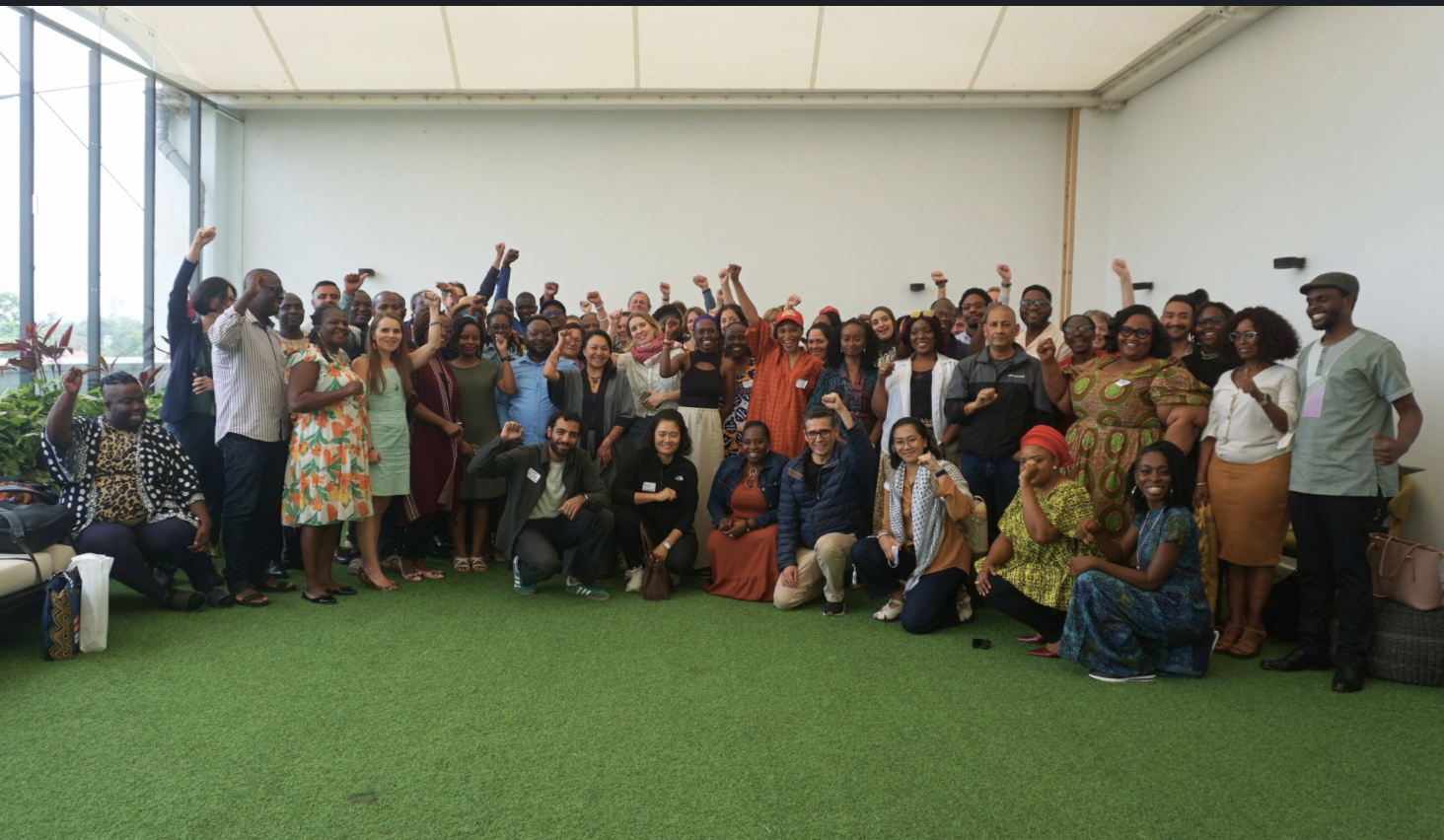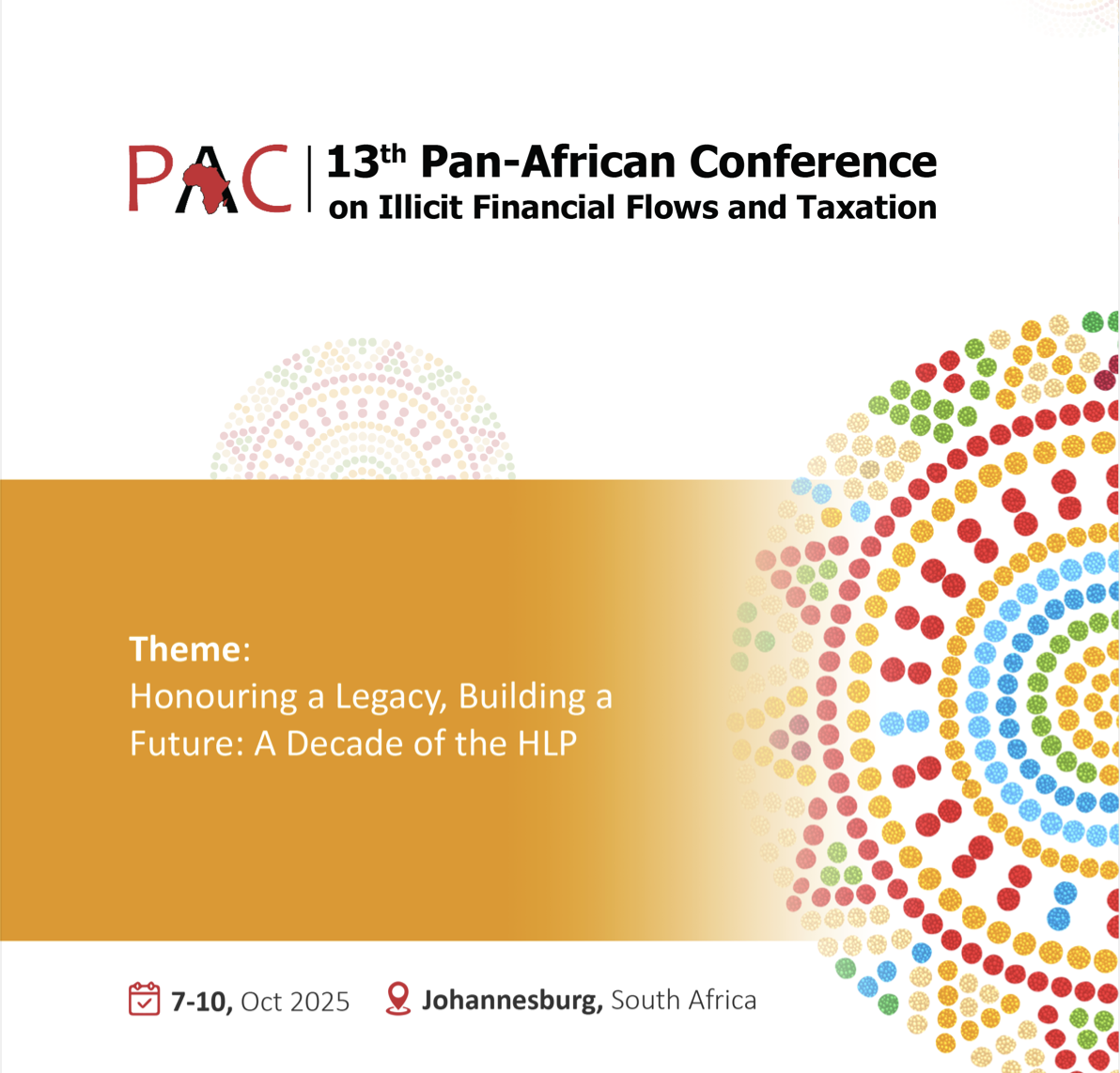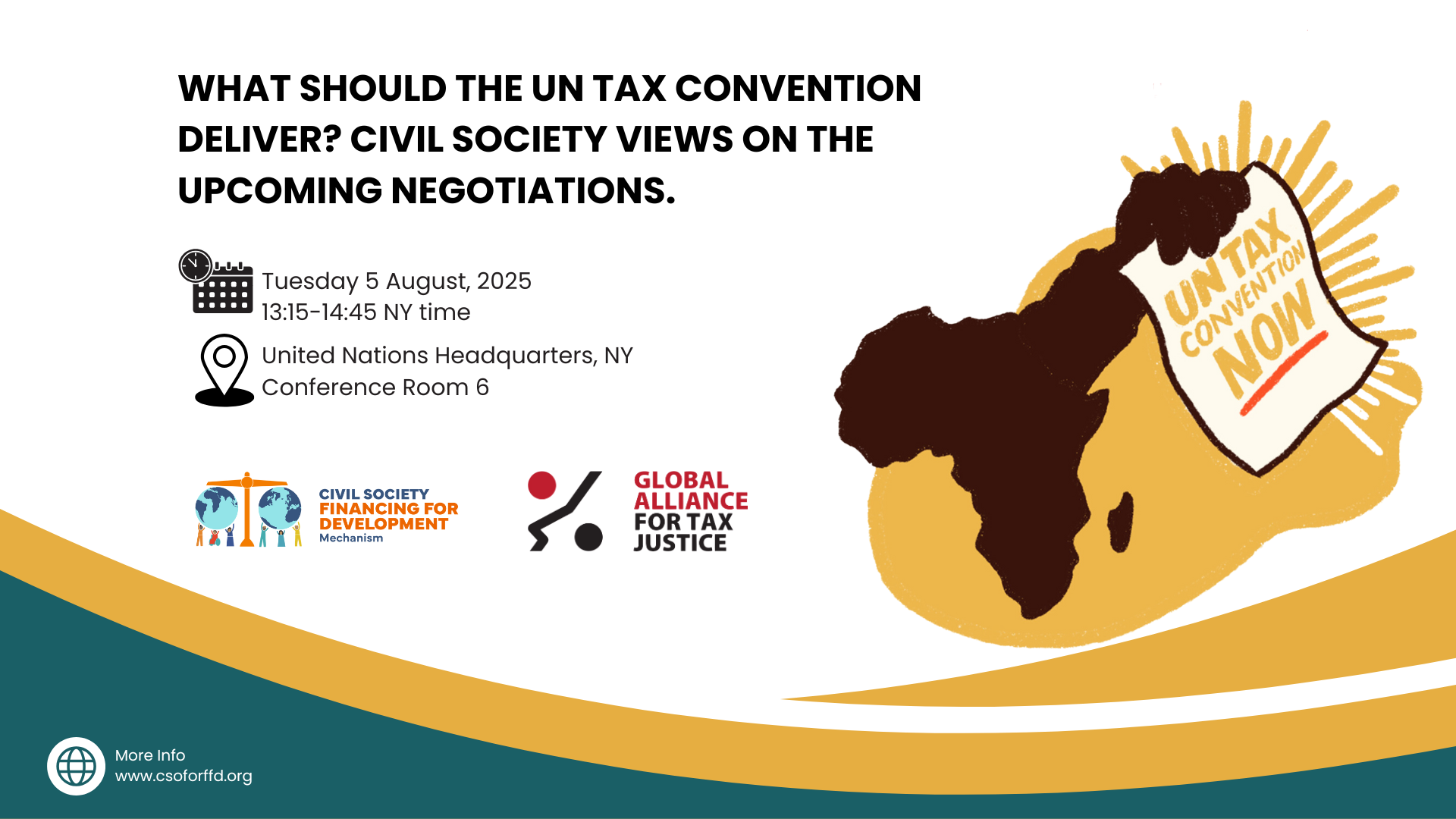
As the U.S. Leaves the UN Tax Treaty Negotiations, Civil Society Calls on Countries to Continue Championing the Historic Process
The Civil Society Financing for Development (FfD) Mechanism joins members of the Global Alliance for Tax Justice (GATJ) in calling on Countries to Continue Championing the Historic UN Tax Convention Process. This Monday, after a morning of countries committing to international tax cooperation, the U.S. walked out of the UN Tax Convention negotiations. With or without the participation of the U.S., the historic negotiations to fix the broken global tax rules will move forward.

Please refer to the original source here: https://globaltaxjustice.org/news/as-u-s-leaves-the-un-tax-treaty-negotiations-civil-society-calls-on-countries-to-continue-championing-the-historic-process/
New York City, February 4, 2025 – Monday began the organizational session for the negotiations of a new United Nations Framework Convention on International Tax Cooperation (UN Tax Convention), which is set to deliver three legally binding agreements by the end of 2027; a Framework Convention and two early protocols. The negotiations are taking place at the UN Headquarters in New York and run from the 3rd to the 6th of February. During yesterday’s morning session, countries presented general statements reaffirming their commitment to international tax cooperation and to negotiating in good faith. However, at the beginning of the afternoon session, the U.S. delegation took the floor and announced their objection to the process and that the U.S. would no longer be participating in the negotiations.
Dereje Alemayehu, Executive Coordinator of the Global Alliance for Tax Justice (GATJ), said, “Since the beginning of this UN process, the U.S. has never had a constructive engagement. The fact that the U.S. also virtually withdrew from the OECD-led process is a confirmation that this country is against any level of multilateralism. At the OECD, we saw that watering down the level of ambition still did not keep the U.S. at the table. It should be one more reason for the rest of the world to stick to the founding principles of the UN. The U.S. withdrawal is a call for countries to stay committed to these historic negotiations and produce a robust framework convention.”
One of the key issues being discussed at this week’s organizational session is the decision-making rules of the UN Tax Convention process, which was also a central topic in the interventions yesterday.
Tove Maria Ryding, Tax Coordinator at the European Network on Debt and Development (Eurodad) and a member of the Coordinating Committee of the Global Alliance for Tax Justice, said, “Developed countries have been calling for the decision-making rules in the process to be changed from majority to consensus, but yesterday we saw why that is a very bad idea. Luckily, the developing countries have insisted on keeping the majority decision-making rules, and therefore it is not up to the U.S. to decide whether other countries want to continue the global fight against tax havens. With or without the U.S., the UN Tax Convention negotiations will move forward.”
GATJ has campaigned to negotiate global tax rules in an inclusive and effective manner so that countries can work to end tax abuse and illicit financial flows to deliver sustainable public finance and address inequalities.
Luis Moreno, Chair of the Coordinating Committee of the Global Alliance of Tax Justice and member of Red de Justicia Fiscal de América y el Caribe, commented, “The countries of the South must stand firm in their decision to move forward with a majority decision making agreement, otherwise we would expect a permanent blockage to proposals that combat tax abuse by large corporations and the wealthy, tax progressivity, and equality in decision making. The U.S. is once againtrying to throw a wrench into the system and this time has walked out of the UN Tax Convention negotiations. This should be a call to redouble our efforts and not be intimidated by those who want to maintain an obsolete tax system that favors their interests at the expense of the welfare of the majority.”
Civil society and countries from the Global South have consistently shown the importance of international tax cooperation for issues from financing for development to gender.
Jeannie Manipon, Co-Coordinator of the Tax and Fiscal Justice Asia (TAFJA), and member of the Coordinating Committee of the Global Alliance for Tax Justice, said, “Current tax abuse hampers the abilities of governments to raise the revenues needed to finance quality public services and development, deliver on human rights obligations, and deliver rapid and urgent climate action to meet the scale of need. Rectifying the international tax system is needed to fix this. It is clear, for us as civil society and for many of the countries today, that there is no time to lose. Yesterday morning, many countries reiterated the importance of these negotiations. These strong statements proved a stark contrast to the position of the U.S.”
For over a decade, GATJ and Global South countries have called for an intergovernmental tax body at the UN. Holding negotiations at the UN is historic because it represents the first time that all countries can participate on an equal footing in tax discussions, as opposed to exclusive platforms such as the OECD.
Everlyn Muendo, Policy Officer, Tax and International Financial Architecture, Tax Justice Network Africa, member of the Global Alliance for Tax Justice, commented, “What we saw in the room yesterday demonstrated the importance of a universal and inclusive process on international tax cooperation. Global South countries, and African countries in particular, are not strangers to outright refusal for cooperation in economic matters. We continue to encourage countries to negotiate in good faith as international tax cooperation is not only to the benefit of developing countries but also developed countries. A truly inclusive process is in the interest of all.”
Ends
For more resources:
For further information about what has happened in the negotiations and the importance of this process, read GATJ’s post here.
The negotiations, including the statement made by the U.S. can be found on UN Web TV here.
More details on the logistics of the negotiations can be found on the UN website here.
Contact:
Alexandra Wenzel, Global Communications Coordinator, GATJ alexandra@globaltaxjustice.org, WhatsApp +41 778133732
About GATJ:
The Global Alliance for Tax Justice (GATJ) is a South-led global coalition in the tax justice movement. Together we work for a world where progressive and redistributive tax policies counteract inequalities within and between countries, and generate the public funding needed to ensure essential services and human rights.
Created in 2013, GATJ comprises regional tax justice networks in Asia (Tax & Fiscal Justice Asia), Africa (Tax Justice Network Africa), Latin America (Red de Justicia Fiscal de América Latina y el Caribe), Europe (Tax Justice-Europe) and North America (Canadians for Tax Fairness & FACT Coalition), collectively representing hundreds of organisations. GATJ co-coordinates the Tax justice Workstream of the CS FfD Mechanism.

